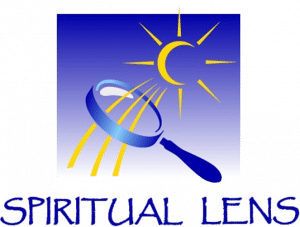I don’t speak about making amends that often in this blog. However, the process of going back in my life and healing my past through making amends has been a powerful experience. The term ‘amend’ means ‘to change’ or ‘to alter in some fashion.’ Like when we make an amendment to the Constitution, it means we are changing or adding something that was not there before. In my last post, I spoke of a lessor known term called “Moral Injury.” It’s not a term that is used in regular parlance. When I became aware of the term, I saw how it affected everyone from veterans to sensitive souls to religiously leaning people. I wanted to explore further how making amends to another can be a powerful experience in the healing of moral injury.
Currently, I am in the process of celebrating the Jewish High Holidays. A process which requires us to make amends and restitution to others whom we’ve harmed. The High Holiday liturgy (words in the prayer book) say that we cannot go to God for forgiveness if we haven’t attempted to face the person we’ve harmed first. So let’s explore the issue of making amends and the rewards inherent in doing so.
How Amends Can Heal Us All, Especially In the Instance of Moral Injury
Remember that moral injury is defined as ‘how our souls react when we perpetrate or fail to stop an act that violates our individual moral code, value or deeply held belief.’ The term moral injury, originally came about when studying Veterans of war. It was found that moral injury differed from PTSD in that PTSD was a physical and psychological reaction to trauma that affected the body and psyche, whereas moral injury is more of a ‘soul based’ injury. The definition of moral injury includes events that occurred in situations where deeply held moral beliefs or values were violated such as:
- Acts of perpetration (killing or injuring another human being)
- Omission or commission – like choosing not to or not being able to help someone in need
- Being the victim of someone’s transgression (e.g., physical and sexual assaults), Witnessing human suffering or mistakes and accidents that cause harm.
When we make amends to someone whom we’ve harmed or whom we perceive we’ve harmed, great healing can occur. One of the best cinematic examples of this healing is in found in the movie Forrest Gump, starring Tom Hanks. https://www.imdb.com/title/tt0109830/ Lt. Dan comes from a long line of military men in his family. It is expected of Lt. Dan that he will die in battle as did many of his ancestors. They were viewed through the lens of glory and honor. To survive was seen as weakness. On top of surviving, Lt. Dan loses his legs. He spends the movie dealing with his anger at not only losing limbs, but also, being a survivor. He and Forrest were the only ones of their platoon who survived during the ambush. At the end of the movie, Lt. Dan shows up at Forrest’s wedding with a Vietnamese fiancé. It took his facing and dealing with his own moral injury to allow him to later have true healing. (Great movie by the way. Go check it out if you have never seen it!)
What Happens During The Amend Process
There is a process to making amends correctly. Many do not realize that inherent in many religions is a formula for making amends. In Jewish tradition, for instance, one who has harmed another is obligated to return up to three times to the person they’ve harmed and attempt to make amends. If the person refuses to accept their amend, they do not have to keep trying, as long as they have made the sincere approach three times. (Three is the number of intention in Judaism. You can do something once by accident, twice, by mistake, but to do something there times shows intent.)
As soon as someone allows you to make an amend, the process is that you share your perception of the harm you’ve caused. After you say what you have done, you ask them if there is anything you’ve omitted. Then you have to wait and let them talk. The process of allowing them to talk, (you can’t argue back, by the way, you just have to listen.) is where the healing takes place. Even when you have caused great harm, when you give someone the dignity of letting them share how much pain you caused them, even if it’s a painful experience for you as well, it is a healing experience for both parties. And finally, after you listen and affirm their experience, you ask what you can do to make it right. Maybe you owe them money. Maybe there are actions you can take to make restitution. Whatever it turns out to be, unless it will harm us, we have to be willing to do what is asked of us.
Forgiveness and Amends
When we make amends to another, there is a process that happens. When someone forgives us for what we’ve done wrong. Or, when we forgive others, we undergo a process of release, emotional growth and potential transformation. Two points have to be stressed here:
- Forgiveness doesn’t mean we condone the event. It just means we are releasing our attachment to letting it continue to harm us.
- Making an amend is NOT only about saying we are sorry. We have to be willing to take further action, if necessary, to attempt to undo the harm we’ve caused.
Self-Forgiveness Is Also A Part of the Amend Process
When we speak about forgiving oneself, barriers often come up in the form that some acts can never be forgiven. How can we forgive ourselves, if we haven’t received forgiveness from the person we’ve victimized? Will be ever feel free from culpability? Or can we only be forgiven by God for that which we’ve done?
We are allowed – even encouraged to begin the process of self-forgiveness. When we hold on to injuries we’ve caused others, it stymies our spiritual development and taxes our souls to the point that we cannot ever feel successful. No matter what accomplishment we may achieve, it is always shadowed by the darkness which seems to haunt any unforgiven acts. Once we become willing to begin to articulate and/or journal about what we have done, we can begin to move beyond our guilt toward self-restitution. Even if we still need to take the step of facing someone and making an amend, at least we can begin the healing process. There is tremendous healing in coming clean to ourselves and to another about what we believe we’ve done wrong.
In my own experience, we can make an amend by doing work to heal the world in the honor and memory of someone we’ve harmed. We can do community service, do acts of service for others (where we don’t take credit) like paying for the person behind us in line at the grocery store, picking up trash along a path or even mowing the lawn of a neighbor when their grass gets too high. Sometimes its important to return to the place itself where acts occurred in order to make peace. (I had this experience when I returned to the college campus and offered prayers of peace to those nameless people I felt I had harmed.) In this way, I moved from shame and guilt for my past – to a place of healing, compassion and self-forgiveness.
If you have unmade amends which are blocking you from moving forward in your life, I highly encourage you to be brave and take that first step toward healing. Drop me a comment or an email if you want to share your experience. And until we meet again, may you be blessed along your spiritual journey.


